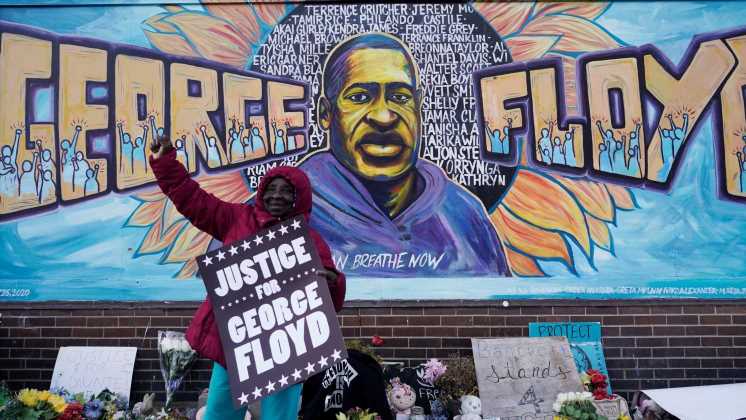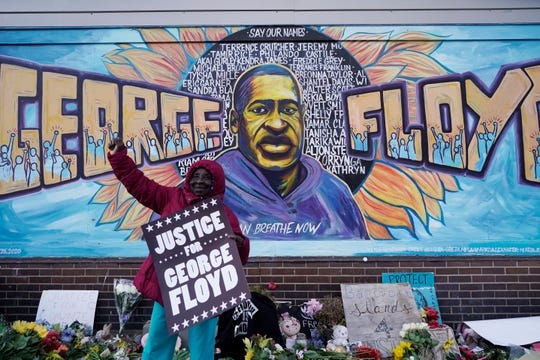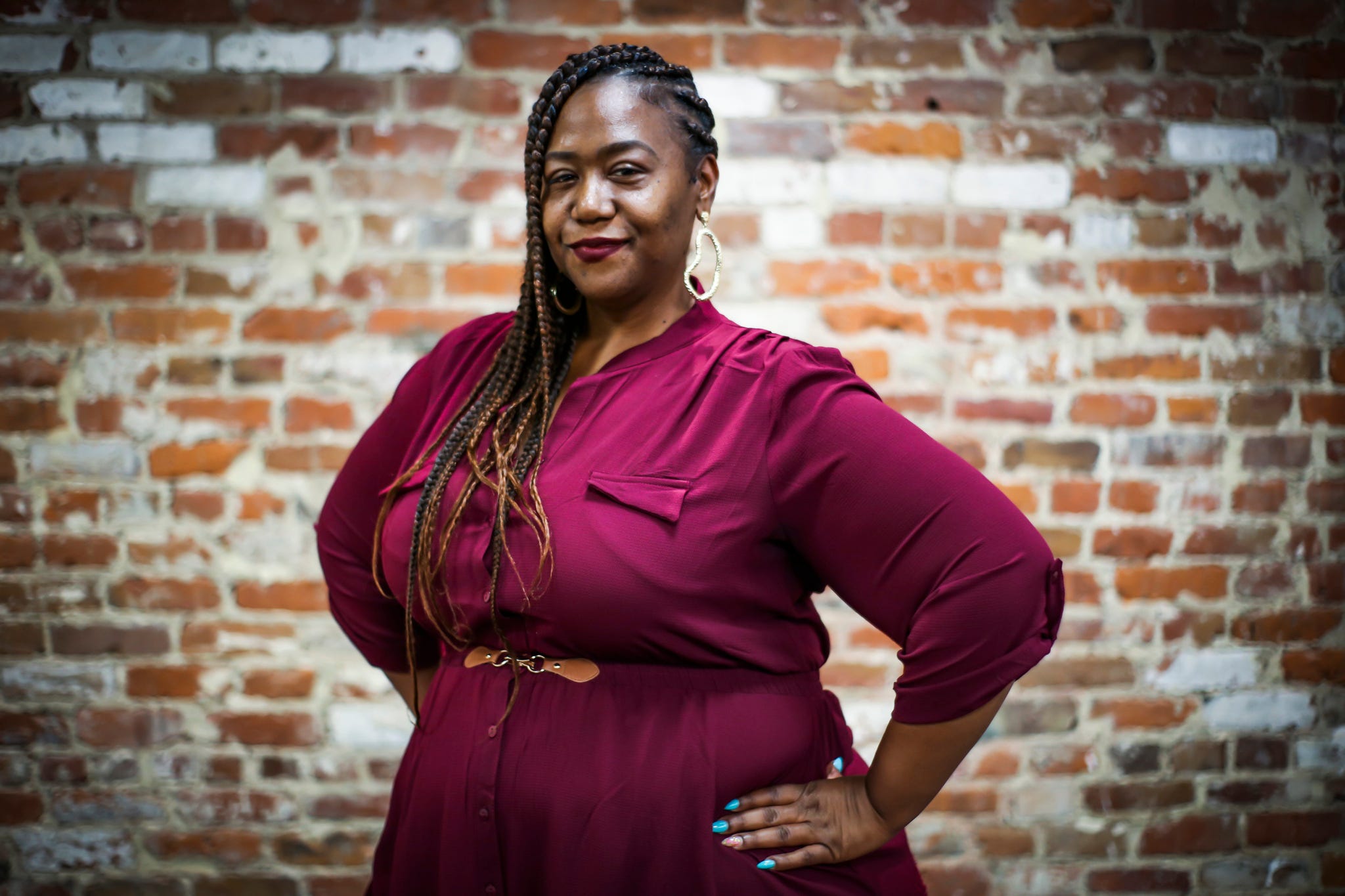Reaction near Cup Foods after the guilty verdict was announced at the trial of former Minneapolis police officer Derek Chauvin for the 2020 death of George Floyd. (Photo: Morry Gash/AP)
For most in the Black community, the overwhelming public outcry following the murder of George Floyd a year ago – and the attention on Derek Chauvin’s trial – was stunning. After so many deaths at the hands of the state, it was surprising to see America respond with the outrage the murder deserved. Yet, Black trauma shouldn’t have to be videotaped for it to matter.
The truth is that the Black and brown communities most harmed by violence are often left out of conversations on solutions. Public officials continue to return to throwing more money into over-policing and over-incarceration in response to violence, disregarding the fact that these responses haven’t delivered safety. Instead, they further rip at the fabric of our communities.
After hundreds of years of trauma and a year of reckoning with racial justice, it’s time for policymakers to respond differently.
First, they need to confront and end the reality that Black victims of violence have been ignored as crime victims for too long, disregarded by the justice system and blamed for our victimization.
We have both experienced this personally, when losing family members to senseless violence in California and Florida. One of us lost two brothers to violence in California, and the other lost a niece to violence in Florida. Neither of our families were offered support from the public safety system afterward, or even treated with the trauma-informed response that crime survivors deserve.
We know our experiences are more the rule than the exception. According to a survey conducted by Alliance for Safety and Justice, fewer than 1 in 3 crime victims reported receiving the help they desperately needed after experiencing trauma.
COLUMN: Release people incarcerated under draconian marijuana laws
Unaddressed trauma devastates communities, costing people their jobs, housing and safety. If spending prioritized our recovery and safety, communities would have a chance to heal from what they’ve experienced and cycles of violence would be stopped. This would require support for community-based violence prevention programs, trauma recovery services and key community investments, as opposed to the current excessive spending on the criminal justice system.
Second, policymakers must place the focus on the meaningful priorities of crime victims, such as increasing legal protections to prevent job and housing loss during recovery from victimization.
Survivors of violence are already working to implement this agenda in their home states.
T-Pain attends Casa Herradura Visits Los Angeles on April 26, 2016 in Los Angeles, California. (Photo: Joe Scarnici, Getty Images for Tequila Herradu)
California survivors are fighting for Senate Bill 299 to improve access to services for victims of all violence, including support for victims of police violence, which disproportionately impacts communities of color. By ensuring access to the state’s victim compensation program, we can ensure communities overcome trauma, are healthier and safer. Survivors in California are also advocating to establish workers’ rights to unpaid bereavement leave after the death of a loved one (Assembly Bill 95).
In Florida, survivors are similarly working to establish job protections for crime victims to take time off to prioritize their safety. No survivor of violence should ever have to choose between their safety or main source of income. Sunshine State survivors have also been working to make the justice system more effective at stopping cycles of crime by improving probation.
COLUMN: Cop killing of teen shows how child welfare, police derail young Black and brown lives
These reforms are just a few examples in two states that reflect a broader national agenda to urge lawmakers across the country to enact survivors’ safety solutions that invest in community safety and well-being, rather than over-incarceration. By 3 to 1, crime victims nationwide agree that prioritizing mental health, drug treatment and other effective rehabilitation is more effective at preventing crime than spending more on prisons that doesn’t stop cycles of violence.
Tinisch Hollins (Photo: Californians for Safety and Justice)
With too little public investment in the right community solutions, Black and brown families have had to fight for every ounce of safety for generations without adequate support. It’s not a coincidence that the most underserved communities experience the brunt of violence and trauma; in fact, it’s the predictable outcome of public policy decisions.
POLICING THE USA: A look at race, justice, media
It has been stunning and cathartic to see so many Americans begin to confront some of these racial injustices in the past year. But valuing Black and brown lives requires action: public policy changes and deep investments in community safety solutions. We need public officials to demonstrate their commitment by finally listening to those most harmed and investing in our safety.
T-Pain (Faheem Rasheed Najm) is a Grammy-winning musician from Tallahassee, Florida. Tinisch Hollins is executive director of Californians for Safety and Justice. They are both members of the Crime Survivors for Safety and Justice network, which recently released a National Crime Victims Agenda.
Source: Read Full Article


